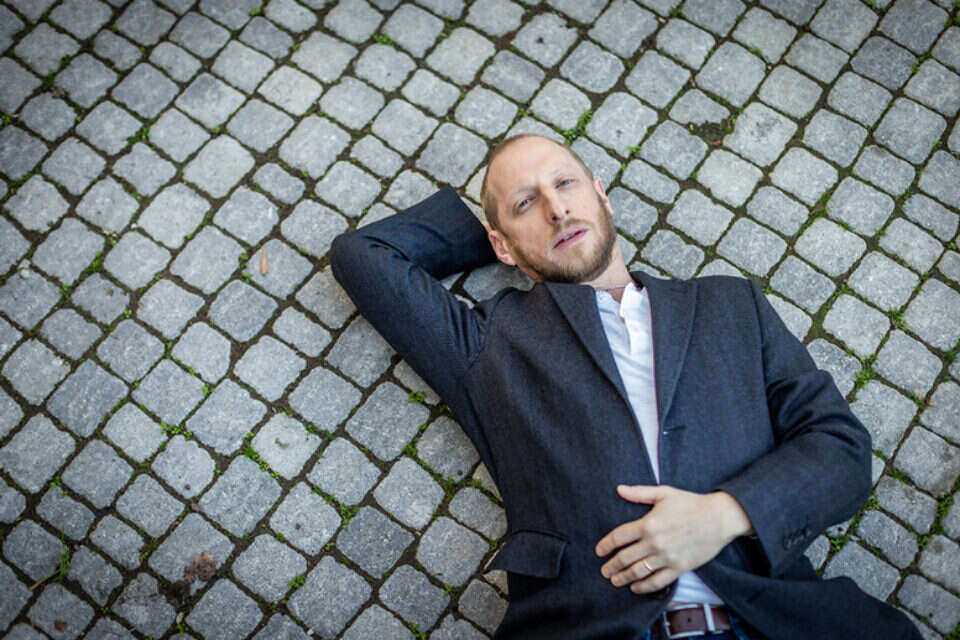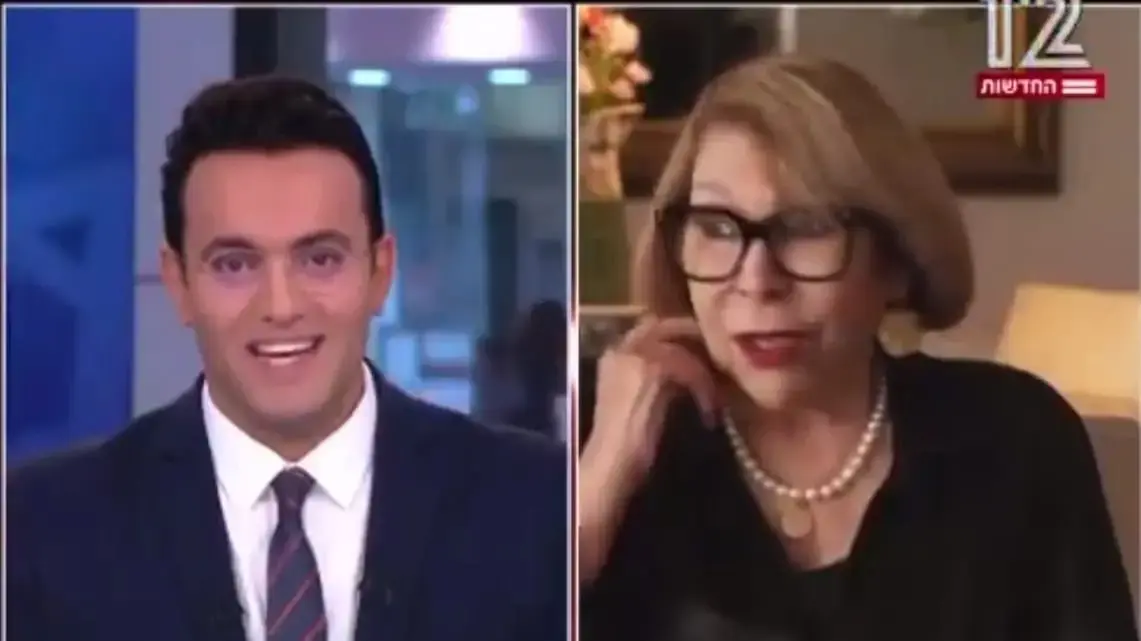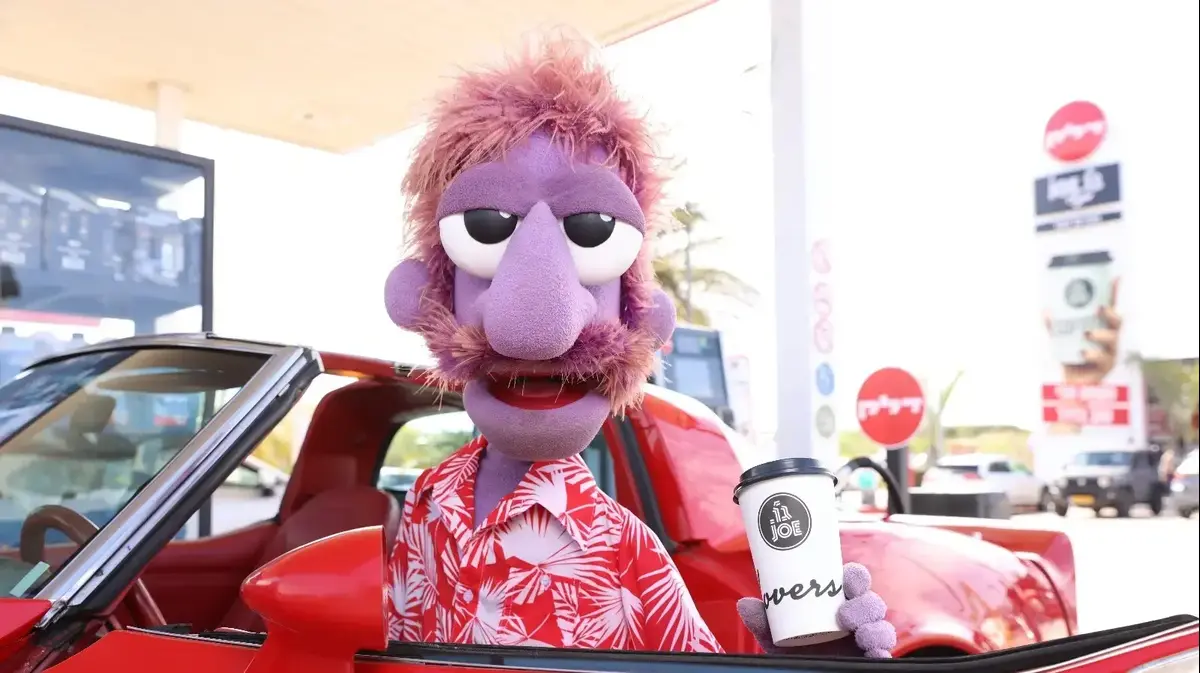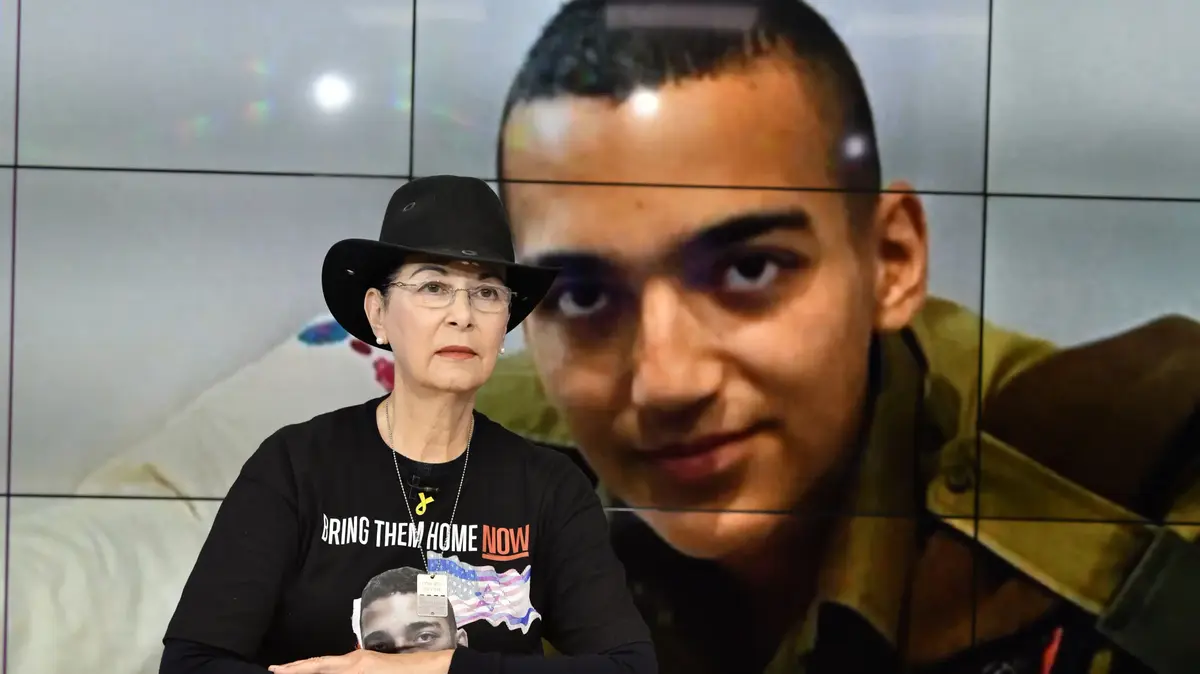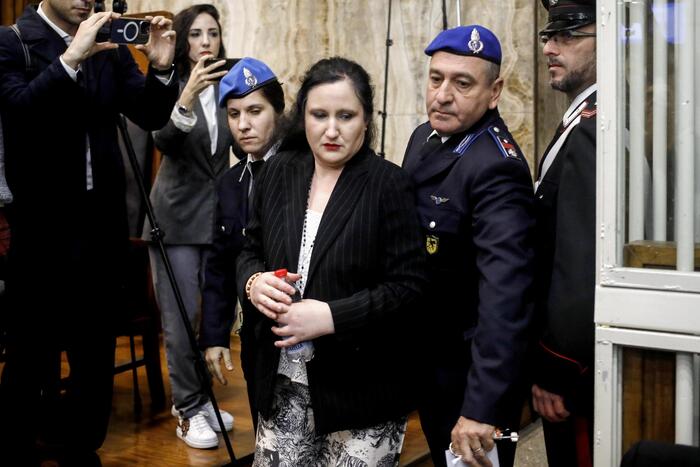Next month will mark one year since the Russian army invaded Ukraine.
Director Leon Prodovsky, who was born in the Russian city of St. Petersburg, has no doubt how the war that has been raging ever since should end: in the complete defeat of Vladimir Putin.
"Russia needs to be broken up into small countries, just like the USA and India", he is firm. "It is a huge country in size, whose millions of inhabitants, those who do not live in the central regions, actually live in garbage.
Entire villages without electricity, which the state simply abandoned.
"In my opinion, the control of Russia should not be in one centralized place, which only cares about itself. Changing this can save it, otherwise it will become a fascist and totalitarian state just like North Korea."
Prodovsky (44), who has been living in France for the past few years, testifies that Russia's propaganda about the war put him in complete shock and awakened old personal charges in him.
As someone who grew up in Russia as a child and immigrated to Israel when he was 13 years old, he realizes in retrospect how much the Russian education system lied to him and deceived him there.
"Looking back, I analyzed my years in Russia, and it deeply unsettles me. There are many things that I grew up with, and today I understand that they are lies that were put into my head, in a form of manipulation and propaganda."
What things, for example?
"It bothers me terribly that people with abilities sold cheaply the freedom to live in Russia, the ability of the citizen to speak his mind. I have a serious criticism of the conduct there. It's hard for me."
Udo Kier and David Heyman in "My Neighbor Adolph".
"I thought about how my grandmother, a Holocaust survivor herself, would have reacted in the same situation", photo: United King Films
The fuhrer in retirement?
Even if he didn't mean it in advance, Prodovsky's feelings regarding the Russian invasion of Ukraine are in many ways connected to the subject of his intriguing new film, "My Neighbor Adolf", which was released yesterday.
The plot of the film, which was screened at the prestigious film festivals in Haifa and Locarno, Switzerland, and which Sheprodovsky wrote in collaboration with screenwriter Dmitri Malinsky, takes place in 1960 in a remote town in South America.
It follows an elderly, lonely and grumpy Holocaust survivor named Polski, played by the Scottish David Heyman ("Taboo", "The Boy in the Striped Pajamas"), who borrows the house next to his house and moves in with a new and mysterious neighbor, played by the German Udo Kier ("Break the The Waves", "Melancholia").
Pulaski suspects that the neighbor is none other than the Nazi oppressor Adolf Hitler, in his own right.
The film follows the complex - and sometimes surprising - relationship that slowly develops between Polsky and the unknown neighbor, and discusses weighty questions concerning memory and its illusions, revenge and moral responsibility (which is also reflected in the treatment the survivor receives from Israeli representatives who hear his puzzling version), alongside human empathy, Forgiveness and willingness to reconcile in the face of shared tragedies.
The topicality of the film cannot be ignored, with millions of Ukrainians now becoming refugees, like Polsky. Do you also think that even though 70 years have passed since World War II, not much has changed?
"This is a complex matter. In Israel, there is a fact that we do not have a clear immigration policy alongside the Law of Return. I believe that we have not done enough on the issue of Ukrainian refugees. Even if public opinion in Israel is very much in favor of Ukraine, I feel that we have an experience of dancing on two weddings.
"There is a feeling that Israel is between East and West, a type of European country located in the Middle East - and therefore we are more inclined to fear Putin and think that he has real political power. But this is not anchored in reality, these are just paranoias. Putin has the ability to make people fear him and appreciate him, And he was very successful among the Israelis. This belief gives him strength.
"In Europe it no longer works, people have stopped being afraid of Putin, and it seems that he is going to disappear from the landscape soon. The new Israeli government will probably be more on his side, because Netanyahu has bragged for years that he is Putin's friend. This worries me a little, but in the end Bibi knows how to manipulate , so maybe he will do some smart things along the way."
Fear is a central motive in human behavior, and also in the plot of your film.
"Absolutely. My film talks about something that will always remain - enmity between people. We use it to manage conflicts. After all, it would be difficult to shoot people we know and love, but not those we believe or feel threaten us.
"I see how Ukrainians hate Russians these days. I understand and accept that. Unfortunately, the hatred for the other will always remain, otherwise, if we have no one to hate - how will we manage human society? You can say that this is exactly what is happening with Polsky. He is motivated by hatred , from demonization and pain, and also from a desire to take revenge for what the Germans did to him and his family."
Slowly and gradually, precisely when Pulaski tries to prove that the neighbor is indeed Hitler, the two begin to connect. What were you trying to say here?
"It's an accurate allegory about what happens when you get to know the enemy, and find out that he's really not what you imagined him to be. Even Hitler, before he was 'Hitler' the character, was a human being - maybe sick and psychotic, but a human being. One who has loves and disappointments.
"It's awfully hard to hate someone you know, and once people get to know each other, cracks will appear in the hatred. Polsky wonders if he was wrong about his neighbor, and he has to realize that there's also the possibility that he's not a bad person at all. It's a broad parable that applies to all hostile neighborly relationships, from those of Russia and Ukraine - and even those of Israel and the Palestinians."
Kinneret Peled and Hayman in a scene at the Israeli embassy.
"There are no sharp teeth in the film, but more of a hug", photo: United King Films
Laughter is a complex thing
When you think of Holocaust films, you usually imagine heavy and long films that show the horrors the Jews went through during the war.
In this sense "My Neighbor Adolf" does not obey the rules of a classic Holocaust film.
There are quite a few comical touches in it, some that are surprising in view of the terrible personal history of Polski, who does everything to prove that his neighbor is the retired Führer.
Naturally, the unusual choice immediately brings to mind "Life is Beautiful", Roberto Benigni's film from 1997, in which a father tells his young son, with whom he arrived in a concentration camp, that everything his eyes see is part of a game that is not without humor - and all in order to save his life and keep his sanity.
"I guess the humor approach is part of my self-defense mechanism. Unlike handling things dramatically, when you laugh - it's more challenging and complex. You have to feel the strings of the instrument you're playing, feel the viewer. When you tell someone something serious and important, if you Not smiling or laughing, and not lightening the atmosphere, it will be more difficult for him to connect.
"When I laugh, I take down all my defenses. Me and the viewers enter into a kind of dance of laughter, and that's how an understanding of a specific moment is created between us. It's an amazing feeling, which gives a kind of wings. I always try to open the minds of the viewers to talk about something serious while Laughter. It's something that connects."
Aren't you afraid that there will be viewers who will think that the comedic moments in the film express disdain, God forbid, for the memory of the Holocaust and the survivors?
"For sure there will be someone who will talk about it like that, it's already a matter of taste. I didn't try to hurt anyone, but if someone wants to be hurt - they can be hurt even by a yellow rubber duck in the bathtub."
It's hard to miss the criticism you make of the country in the film.
When Polsky arrives at the Israeli embassy, the representative who meets him is quite dismissive of him, dismisses his words and tries to wave him off with an exaggerated Israeli accent.
"I don't have a problem with stinging, but I don't feel that there are sharp teeth in this film, but more of a hug. The representative
(played by Kinneret Peled, AA) represents this Israeliness, but the film had to have comedic moments, something a little crazy, because it talks about something very important - which is a part of all of us. The hostility, the friendship, the love, the hatred and the post-trauma are Something that always exists in us. I think it's good that it exists, this satire."
The idea for the film came to Prodovsky's mind about 12 years ago, when he returned to Israel from a film festival held in Brazil.
He shared his experiences with Malinsky, the other screenwriter in the film - and this suggested that he write a fictional film about a situation in which Hitler remained alive, escaped punishment and was hiding in Brazil.
Prodovsky was not enthusiastic at first, but according to him, the idea did not leave him that night.
Among other things, he wondered how his grandmother, a Holocaust survivor herself, would have reacted if she had discovered that the Führer, of all people in the world, was her neighbor.
"It just grabbed me, how she, with all her hatred for the Germans and everything related to them, would behave and experience the matter. We wanted to write about a man who demonized his neighbor very strongly, and then see what happens when he suddenly gets to know him. When he suddenly realizes that maybe Actually, the demon is not that bad."
I guess the filming was not easy, as part of an international production that speaks six languages, including English, Yiddish and Hebrew.
"It was an amazing experience, with wonderful people from all over the world. When I arrived on the first day at the set in Colombia, I started crying, in tears. After so many years of writing and preparation, suddenly this thing, which I dreamed about all the time, burst into me."
How did you get along with the main actors? Each of you comes from a different culture and different languages.
"They are both over 70 years old, but they are so different from each other. David is a great actor. We wanted someone who looked like he had been bulldozed, and as soon as I saw him - I knew he was the right choice. The role of Pulaski was very important to him, but he was Frightened and thought I didn't really know what I was doing. It was very difficult for him.
"Unlike him, Odo did not arrive frightened at all. He had already done hundreds of roles in his life, worked with some of the most respected directors in the world (including Gus Van Sant, Lars von Trier and the Oscar winner Alexander Payne), but he was also difficult to work with, between Other than that he is some kind of Hollywood star.
It creates all kinds of very challenging situations."
like what?
"As a director, I expected both of them to come and fight by my side for the film, but it was difficult. With each of them it happened at a different moment. David told me that at first he did not tolerate me at all! With Udo, there was a very interesting situation: we shot a scene that was very important to him, and then He went to the corner. Suddenly David came to me angrily and said Udo is angry with me because I didn't support him enough.
"I talked to Udo, and then he said to me: 'I'll do what you say, but you know that either you're completely crazy, and the film will be a crazy flop, or you're a genius that I can't understand.' In the end, he was very disappointed. Of all things I learned a lot from these."
From "My Neighbor Adolf", photo: United King Films
Israeli silence
Like the whole world, and the film industry in particular, the production of "My Neighbor Adolf" was also greatly affected by the corona.
Although filming in South America ended shortly before the outbreak of the epidemic, Prodovsky, who has been living in Paris for the past four years, suddenly found himself editing the film himself.
"We finished filming shortly before the first quarantine, and I was actually stuck in France. At exactly the same time, I also had a daughter. I used to come to Israel at least once a month, but then the quarantine started - and the connection between me and the editor was cut off. For several months, I edited the film at night, by myself, And it was very difficult. I'm one of those who believe that you always need another point of view and another pair of eyes. The whole editing process took a year and a half. The producer was also stuck in Israel, with a disconnection that caused many difficulties. In short, everything took a lot of time."
Did it affect the final result?
"No, on the contrary. I think that in the end it actually did good. The film turned out to be more complex and challenging than I imagined, with the right dose of the amount of laughter and tragedy. I'm usually a person who is not satisfied with anything, but I came away very satisfied with this."
The film received, among other things, a budget from the state. In your opinion, if it was produced today, the new government would support it?
"Definitely yes. I think the state should support Israeli culture, even if it doesn't appeal to the general public. In general, there is very little desire to silence people in Israel, in contrast to the situation I see in Russia, which is turning into a dictatorship. Creators are silenced there, and this is something that is forbidden in my eyes. It is impossible Silence people, because the more you silence them, the more it will eventually explode. We must speak."
erani@israelhayom.co.il
were we wrong
We will fix it!
If you found an error in the article, we would appreciate it if you shared it with us

